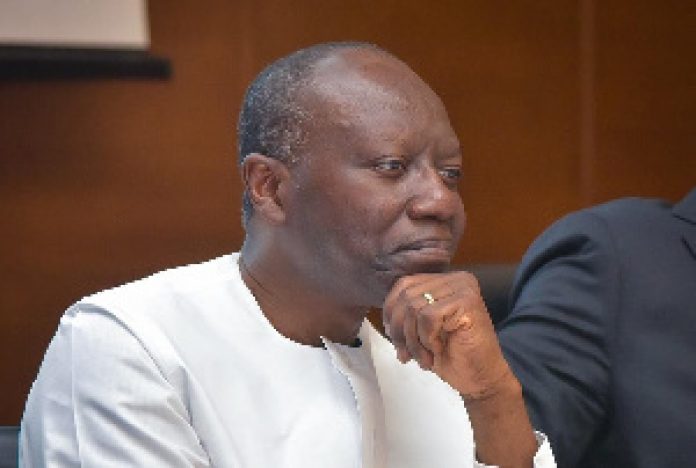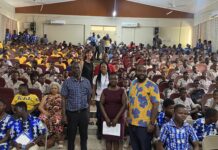Recently, the Minister for Finance hinted the significance of civic responsibility as a key to driving national development.
The Minister was speaking at the Danquah Institute Forum at the College of Physicians in Accra and reported by The Ghanaian and international media.
He explained that citizen responsibility was expressed through social consciousness, tax contributions and the protection of the national purse and that the success of Ghana Beyond Aid Agenda depended largely on the citizen’s responsibility.
In sociological analysis of development discourse, citizen responsibility falls within what we call non-economic factors for economic development.
I offer an extended analysis of the Minister’s presentations using certain sociological lenses, which are crucial in furthering our understanding of this whole idea of attitudinal change and development.
While at it, I link the discussions up with the earlier call by the President to Ghanaians to be citizens and not subjects, emphasising the significance of these non-economic factors in our socio-economic advancement.
Ever since Meiere and Baldwin (1957: 119) commented that economic development was much too serious a topic to be left alone to economists, some scholars started investigating the socio-psychological factors responsible for setting the economic forces in motion that will eventually lead to economic development. For instance, even though W. W. Rostow, was interested in economic development, yet he insisted that economic theory must be linked ultimately to sociological and psychological constructs if it was to be maximally useful.
Sociologically, it is widely acknowledged that achieving development is more than just capital injection and technological innovation. In his Introduction to the Sociology of Development, Webster (1984) argued, based on observations by classical sociologists such as Durkheim and Weber, that, the transition from the limited economic associations to modernity depended on a prior change in the values, attitudes and norms of the people.
This argument found its way into mainstream modernisation discourse, which places values and attitude high on the development agenda.
And even earlier arguments that the Asian Tigers experienced development due to dependent-development (So 1990) has been revised and contrasted by Herman Khan (in Seligson and Passé-Smith 2008:237) who posits that the industrial advancement of the Asian Tigers was due more of attitudinal change (based on the people imbibing the Confucian Ethic).
Attitudes, therefore, matter in nation-building and achieving development. Such attitudes emanate from people’s sense of oneness, we-feeling and belongingness. People’s attitude towards the post-colonial state, just as in the colonial days, has been largely an attitude of dislike.
The colonial state with the white ruler was perceived by the natives as a stranger entity, an exploitative one, and an enemy. The state could, therefore, be justifiably cheated and abused at the least opportunity. Peter Ekeh’s “parable of the foolish moral man” illuminates this further.
In this parable, Otobrise, a native, had picked a bag which fell from the moving carriage of the District Colonial Officer in Nigeria. This bag contained hundreds of pounds of money “which constituted a fortune in those dreary colonial times” Otobrise picked the money, walked a distance of three miles to the colonial Headquarters, and handed the money back to the District Colonial Officer.
He went back home, narrated the story to his wife who immediately ‘packed her belongings and left him’. “Otobrise is too much a fool”, she cursed’. Otobrise’s story spread far and wide and his family summoned him.
At the family meeting, he honestly recounted the event. “At the end of his honest account, the eldest man in the family told Otobrise that he was a foolish moral man”. Then the village maidens composed songs that ridiculed him as “the village fool”. In the eyes of his immediate family, his extended family and the larger community, Otobrise was a fool and his actions were foolish. The white man represented the state, and Otobrise was expected to have taken the money from him and to own it not to return.
Ekeh has used historical data to analyse contemporary development challenges arising out of attitude. Ekeh (2012:200) opines, “the experiences of colonialism in Africa led to the emergence of a unique historical configuration in modern post-colonial Africa, which is the existence of what he calls the two publics (instead of one public, as in the West). Ekeh’s position is that there are two public realms in post-colonial Africa. On one hand is that public realm in which primordial, ties and sentiments influence and determine the individual’s public behaviour, which Ekeh calls the primordial public.
On the other hand is the public realm which is historically associated with the colonial administration and which has become identified with popular politics in post-colonial Africa.
It is based on civil structures: the military, the civil service, the police, among others Ekeh calls this the civic public. The most outstanding characteristics of African politics, Ekeh observed was the same political actors who operated in the primordial and the civic publics.
These two publics exist side by side and tend to grow together.
More practically, Ekeh examined the two publics alongside the concept of citizenship and argued that an individual as a member of a political community had certain rights and privileges, which he may claim from it, and at the same time, with certain duties and obligations which he performed in the interest of the political community/the state.
Therefore, one critical attribute of citizenship is that the two elements of citizenship-rights and duties- are closely interwoven, interconnected and transactional.
According to Ekeh, citizenship had acquired a variety of meanings, which depended on whether it was conceived in terms of the primordial public or the civic public.
And there lies in the danger. The individual African sees his duties as a moral obligation to benefit and sustain a primordial public of which he is a member. “The foci of such duties may, of course, vary from one setting to another, but in most of Africa, they tend to be emergent ethnic groups” (Ekeh 2012:214). The primordial public can be defined as limited to an extended family of two hundred, or to an emergent ethnic group to whom the individual pays duties to, without expecting any material rights. Informal taxation in the form of voluntary contributions to ethnic associations and different other types of obligations to help out with ethnically-owned community programmes are a prominent feature of modern Africa.
However, the individual gains from the primordial group, intangible, immaterial benefits in the form of identity or psychological security.
In her recent work on “Professional ethics of Ghanaian Public Servants”, the German anthropologists Carola Lentz (2014) revealed through her interviewees, that in our “Ghanaian parlance they say the government is elephant meat.’
An elephant meat, in their local dialect, means that it’s too big that one man can’t eat it all. So several people eat it…government is the big elephant, and so everybody accesses it in different ways, in whatever manner.
So if I can pick…this copier home to my house and own it, even though it is for the government, then I have picked my part of the elephant. Somebody would use the offices to extort monies, you know government allocation is there for a purpose, they misappropriate it…so there needs to be a radical change in our attitude…” (Lentz 2014:198).
This observation by one of Lentz’s respondents puts the President’s appeal in an excellent context, especially when the symbol of the New Patriotic Party which brought the government to power has the elephant as its symbol.
Robert Price (1975 in Lentz 2014) contended that Ghanaian bureaucrats were victims of their extended family’s particularistic expectations and would compromise their professional ethics because they found it much more important to maintain their good name in their rural home communities.
Even though these findings were revealed in the 1960s Ghana and Lentz thinks this is a problematic assumption, it can be argued that this assumption still has credence in 2019 Ghana. That, we can extend Price argument of the civil servant to every Ghanaian who, working in any form that gives him or her any kind of access to government/ (the elephant meat), is expected not just of the extended family, the community, but of the larger ethnic group, to bring part of the meat home irrespective of how the meat is obtained, and would be celebrated as a good son or daughter by the family, the community, and, the ethnic group if a larger portion of the meat is brought home. This attitude does not auger well for the development of the state.
With the numerous pro-poor social policies already churned out including; the recent Free SHS Policy, the ruling New Patriotic Party can be described as a capitalist party with a socialist heart.
By the Free SHS Policy, the state has announced its presence in a strong manner among large sections of Ghanaians whose sense of the state has been remote, vague and opaque.
By such a policy, it is expected that more Ghanaians would focus on the state, have a tender heart towards it, be less self- centred, and subsequently develop an attitude that focuses on developing the Ghanaian state.
The journey may be long, yet the President has taken the first step. The rest would be history.











